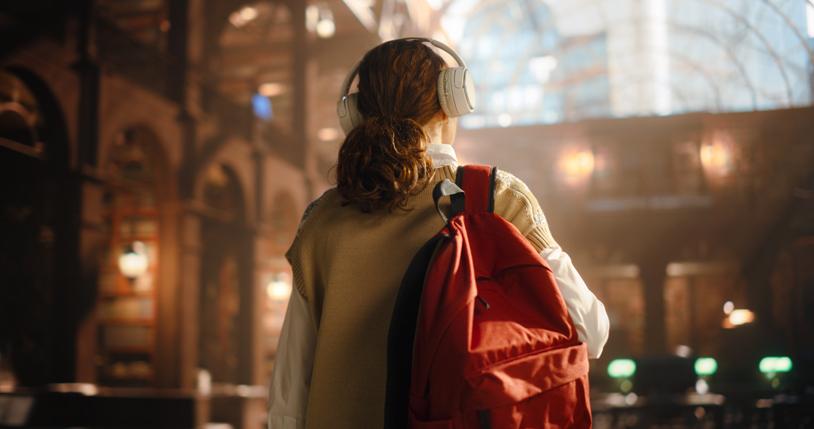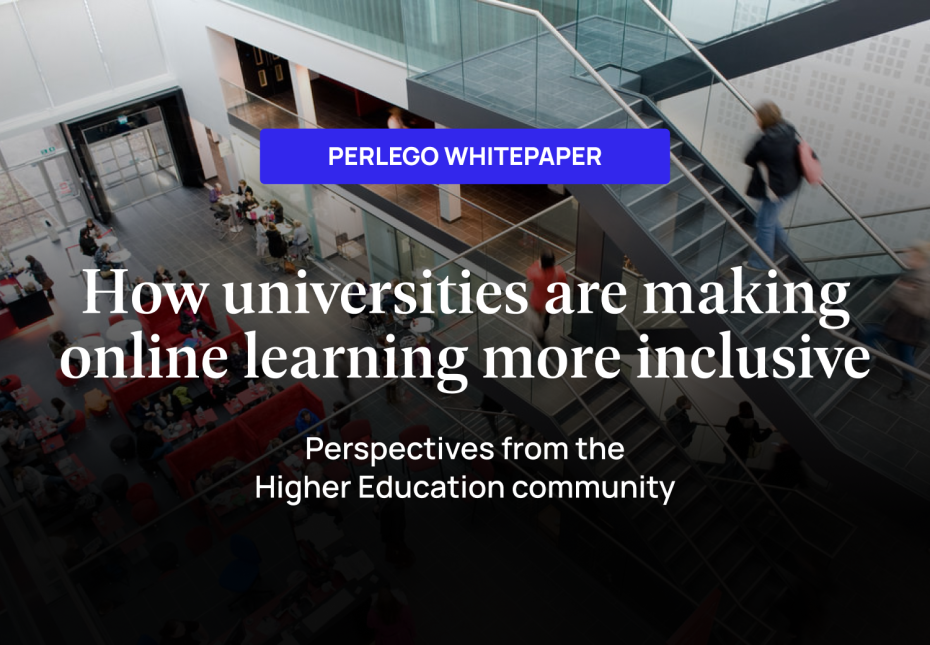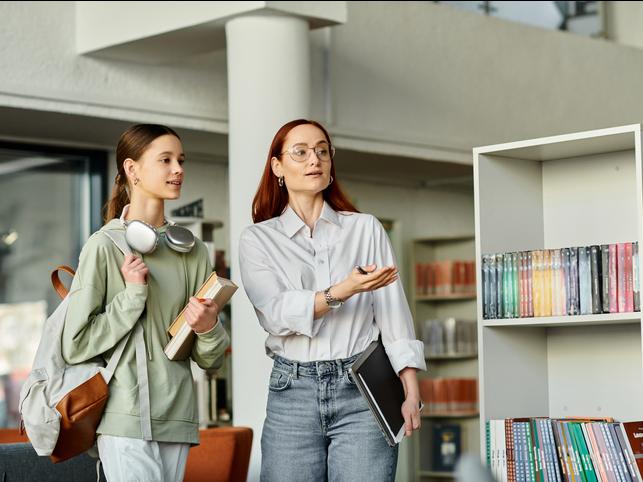These are turbulent times for the higher education sector and academic libraries are in no way exempt from those challenges. We are under huge pressure to reduce costs while simultaneously providing access to more resources. This is often expected to be done with smaller teams, juggling the desire to provide a high-quality service for large student intakes with the imperative to balance the books, keep up with technological advances and support initiatives like open access. In addition, in the post-pandemic climate, we’re balancing working from home with providing a physical, friendly, face-to-face service.
For a small, specialist library like ours, trying to handle the above and keep up with our much larger neighbouring institutions can feel overwhelming. However, we recognise that we don’t always have to do things the same way; that our strength lies in our small size, which enables us to provide library services as bespoke as the teaching each of our students receives. We can provide a responsive approach that aligns the collection with academic, research and performance needs, and supports the students on a one-to-one basis.
- From library-focused project to campus-wide collaboration
- Three reasons why university libraries are key to belonging
- Integrating the university library into teaching and learning
How can this small institutional approach be upscaled to a large academic library? What have we done to solidify our approach to ensure we provide the service and resources that are needed on an ongoing basis?
Evaluate what your students really need, and if you are providing it
In 2023-24, the library underwent a major restructure that put the student journey at the heart of our team and collections. We considered what the key upcoming developments were likely to be, such as research support ahead of research degree-awarding powers or artificial intelligence, alongside our core initiatives – for us, that’s cataloguing. We also discussed how we could make more of what we have: a fabulous archive and museum, along with greater support for information and digital literacy. At the same time, a small, specialist institution with limited resources can’t (and shouldn’t) leap on every bandwagon – sometimes it is better to see what sticks around before committing time and resources.
Collaboration is key – internally and externally
The relatively small size of our conservatoire makes closer internal relationships more achievable. A recent collaborative project with the School of Wind, Brass and Percussion harnessed the potential of the new Higher Education Printed Music Licence to enhance student experience, by providing seamless online access to resources through the digitisation of more than 400 scores. This resulted in a staggering 14,500+ engagements with the resource during 2023-24.
Working with academic staff across the conservatoire enables us to teach and support information literacy for the whole student body, while joint events with the students’ union, including coffee mornings and copyright drop-ins, help establish the library as a friendly, accessible, supportive space.
Externally, playing active roles as members of Academic Libraries North and International Association of Music Libraries helps us keep up to date, to see what other institutions are doing, how innovations at other library services work and how we can adapt them to us and our students. We acknowledge that we cannot do everything we would like to on our own – but can we do it together? Libraries are one of the most effective exponents of knowledge sharing and exchange of ideas in the sector, and we all need to make the most of it.
Do your bit and play your part with what you can
There are many big picture questions – diversification, decolonisation, equality and diversity in collections, for example – that we cannot address in isolation. Instead, we are committed to playing our part in small, but appropriate and considered ways. For example, the library has targeted acquisitions of 100+ African heritage art songs, works by underrepresented female composers and African pianism scores, amplifying and advancing organisational decolonisation and diversity goals, which are greatly valued by both the conservatoire and our students, in the process.
Know your students and what they need
Our industry is a complicated one, with discipline-specific knowledge indispensable to a musician’s degree and their future music career. Our dedicated team of 11 music subject specialists have become integral to every student journey, collectively offering one-to-one support and personal learning plans to 950+ students from 60+ countries.
To provide the services required by the full range of our student body, the library needs to sit on multiple groups and committees, examine its own assumptions (are all students tech literate? Or, in music, is paper actually still the preferred medium?), and gather, evaluate, act on and respond to meaningful student feedback, such as through annual library surveys – free text comments are the most useful. About 70 per cent of recently acquired items were a result of direct user requests, meaning students have exactly the resources they need.
Make the most of what you have
Our key asset is subject specialist staff who really care about supporting every student’s journey. In addition, the archive and museum engage students with the history of the institution and open our doors to the wider community. The recent RNCM Archive project Throwing Open the Concert Doors has so far led to the digitisation of 1,500 student recordings, complemented by community initiatives that directly engaged with more than 750 Manchester residents, across 40 events. Active and direct engagement with the local community helps to confirm our significance as part of Manchester’s cultural story, and to demonstrate our value as a civic institution beyond the needs of conservatoire study.
Our friendly, student-centred approach opens the doors to learning resources, providing bespoke and adaptive support throughout each young musician’s time with us, from offer to graduation and beyond. Learn from each other to adapt and thrive, not just survive, in a demanding and sometimes bleak landscape. Focusing on the student’s individual journey, seeing it all pay off as they walk across the graduation stage – that’s what we come to work for, however large or small the institution.
Sarah d’Ardenne is head of library service at the Royal Northern College of Music.
The conservatoire’s library team was named Outstanding Library Team of the Year in the Times Higher Education Awards 2025. The full list of nominees can be found here.
If you would like advice and insight from academics and university staff delivered direct to your inbox each week, sign up for the Campus newsletter.




comment